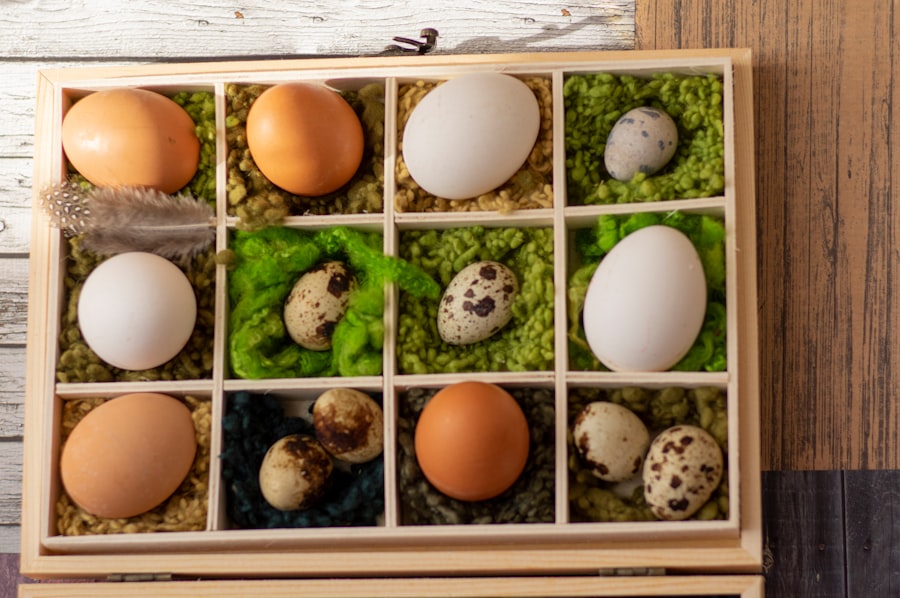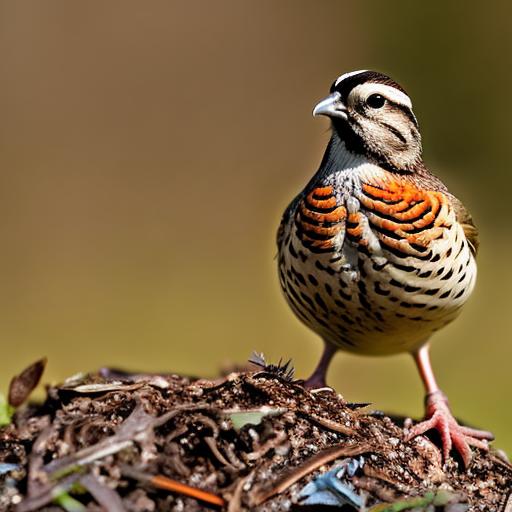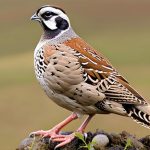Quail keeping has become increasingly popular among homesteaders, small-scale farmers, and even urban dwellers due to their small size, low maintenance, and high productivity. Quail are small game birds that are known for their delicious eggs and meat, making them a valuable addition to any backyard or farm. They are also relatively easy to care for and require minimal space compared to other poultry, making them an ideal choice for those with limited land or resources. Quail come in a variety of breeds, each with its own unique characteristics and benefits, making it important to choose the right breed for your specific needs and goals. Whether you are interested in raising quail for eggs, meat, or simply as pets, there are several key factors to consider when getting started with quail keeping, including choosing the right breed, providing suitable housing and enclosure, ensuring proper nutrition and health care, and understanding the breeding and raising process.
Key Takeaways
- Quail are small, low-maintenance birds that are gaining popularity as backyard pets and for egg production.
- When choosing a quail breed, consider factors such as egg production, temperament, and space requirements.
- Quail require a secure and well-ventilated enclosure with access to fresh water, protection from predators, and space to roam.
- A balanced diet for quail includes a mix of commercial feed, fresh greens, and occasional treats like mealworms or fruits.
- Regular health checks, proper hygiene, and access to a qualified avian veterinarian are essential for keeping quail healthy.
Choosing the Right Quail Breed
When it comes to choosing the right quail breed for your needs, there are several factors to consider, including egg production, meat quality, temperament, and overall hardiness. Some of the most popular quail breeds for egg production include Coturnix (Japanese) quail, which are known for their high egg production and relatively docile nature. Coturnix quail come in a variety of colors and patterns, making them a visually appealing addition to any flock. Another popular breed for both eggs and meat is the Bobwhite quail, which are native to North America and known for their flavorful meat and hardiness. If you are primarily interested in raising quail for meat production, the Jumbo Coturnix quail may be a good choice, as they are larger and meatier than standard Coturnix quail. For those interested in ornamental quail or simply as pets, breeds such as the Button quail or California quail may be more suitable due to their small size and attractive plumage. It is important to research each breed’s specific characteristics and requirements before making a decision, as different breeds have different needs and considerations.
Housing and Enclosure Requirements for Quail
Quail are relatively small birds that require minimal space compared to other poultry, making them an ideal choice for those with limited land or resources. When it comes to housing and enclosure requirements for quail, there are several key factors to consider, including space, shelter, protection from predators, and environmental enrichment. Quail can be housed in a variety of structures, including traditional chicken coops, rabbit hutches, or custom-built aviaries. It is important to provide at least 1 square foot of space per bird to ensure they have enough room to move around comfortably. Additionally, quail require shelter from the elements, such as a covered area or nesting boxes where they can seek refuge from extreme weather conditions. Protection from predators is also crucial when housing quail, as they are vulnerable to attacks from predators such as raccoons, foxes, and birds of prey. Ensuring that their enclosure is secure with sturdy fencing and predator-proofing measures is essential for their safety. Environmental enrichment is also important for quail, as they benefit from access to dust baths, perches, and other natural elements that allow them to exhibit natural behaviors.
Feeding and Nutrition for Quail
Proper feeding and nutrition are essential for the health and well-being of quail. Quail have specific dietary requirements that must be met in order for them to thrive and produce quality eggs and meat. A balanced diet for quail typically consists of a high-quality commercial feed specifically formulated for game birds, which provides the necessary protein, vitamins, and minerals they need to stay healthy. In addition to commercial feed, quail can also benefit from supplemental treats such as mealworms, fruits, vegetables, and greens, which provide variety and enrichment to their diet. It is important to provide access to clean water at all times, as quail can quickly become dehydrated if water is not readily available. Additionally, providing access to grit or small stones is important for quail, as it aids in digestion by helping them grind their food in their gizzards. Monitoring their food intake and adjusting their diet based on their age, activity level, and production goals is important for ensuring they receive the proper nutrition they need to thrive.
Health and Veterinary Care for Quail
Maintaining the health of your quail is crucial for their overall well-being and productivity. Regular health checks and preventative measures can help identify and address any potential issues before they become more serious. Common health concerns for quail include respiratory infections, parasites, injuries, and egg-related issues. It is important to observe your quail regularly for any signs of illness or distress, such as lethargy, decreased appetite, abnormal droppings, or respiratory symptoms. Providing a clean and dry environment can help prevent respiratory issues and parasitic infestations. Additionally, practicing good biosecurity measures can help prevent the spread of diseases within your flock. In the event that your quail do become ill or injured, it is important to have a relationship with a veterinarian who is knowledgeable about avian care and can provide treatment when needed. Having a basic understanding of first aid and common treatments for minor injuries or illnesses can also be beneficial for addressing issues in a timely manner.
Breeding and Raising Quail Chicks

Breeding quail can be a rewarding experience for those interested in expanding their flock or producing their own chicks for eggs or meat. Quail reach sexual maturity at around 6-8 weeks of age and can begin laying eggs shortly thereafter. When breeding quail, it is important to provide suitable nesting boxes or areas where they can lay their eggs undisturbed. Collecting and incubating the eggs in a separate brooder can help increase hatch rates and ensure the health of the chicks. Incubation typically takes around 17-18 days before the chicks hatch. Once hatched, the chicks require a warm and secure brooder with access to food and water to ensure their survival and growth. Providing a balanced diet specifically formulated for growing chicks is essential for their development. As they grow, they will eventually transition to the same diet as adult quail. Monitoring their growth and development is important for identifying any potential issues early on and providing appropriate care as needed.
Tips for Keeping Quail Happy and Healthy
Keeping quail happy and healthy requires attention to their physical and emotional well-being. Providing a clean and comfortable environment with access to fresh water, high-quality feed, shelter from the elements, and protection from predators is essential for their overall health. Additionally, providing environmental enrichment such as dust baths, perches, and natural elements can help stimulate natural behaviors and reduce stress. Regular observation of your quail can help identify any potential issues early on so that they can be addressed promptly. Building a strong relationship with a knowledgeable veterinarian who can provide care when needed is also important for maintaining their health. Lastly, providing social interaction with other quail can help prevent loneliness and promote overall well-being.
In conclusion, keeping quail can be a rewarding experience for those interested in producing their own eggs or meat in a small-scale setting. Choosing the right breed for your specific needs, providing suitable housing and enclosure requirements, ensuring proper feeding and nutrition, maintaining their health through regular veterinary care, understanding the breeding process, and providing environmental enrichment are all essential factors in keeping quail happy and healthy. With proper care and attention to their needs, quail can thrive and provide valuable resources for their keepers.
If you’re interested in keeping quail, you may also want to explore the topic of turkey coop requirements. Poultry Wizard has a helpful article on whether turkeys need a coop, which can provide valuable insights into creating suitable housing for your birds. Check out the article here to learn more about providing the right environment for your turkeys.
FAQs
What are the benefits of keeping quail?
Quail are a great source of protein and their eggs are considered a delicacy. They are also relatively easy to care for and require less space compared to other poultry.
What do quail eat?
Quail are omnivores and their diet consists of a combination of commercial quail feed, grains, seeds, insects, and green leafy vegetables.
How much space do quail need?
Quail require about 1 square foot of space per bird in a coop or cage, and they also need access to an outdoor area for foraging.
What are the housing requirements for quail?
Quail housing should provide protection from predators, adequate ventilation, and a clean, dry environment. Coops or cages should also have nesting boxes and perches.
How do you care for quail chicks?
Quail chicks require a warm, draft-free environment, specialized chick feed, and access to clean water. They also need to be protected from predators and handled gently.
What are some common health issues in quail?
Common health issues in quail include respiratory infections, parasites, and injuries from pecking or fighting. It’s important to provide a clean environment and monitor the birds for any signs of illness.
Meet Walter, the feathered-friend fanatic of Florida! Nestled in the sunshine state, Walter struts through life with his feathered companions, clucking his way to happiness. With a coop that’s fancier than a five-star hotel, he’s the Don Juan of the chicken world. When he’s not teaching his hens to do the cha-cha, you’ll find him in a heated debate with his prized rooster, Sir Clucks-a-Lot. Walter’s poultry passion is no yolk; he’s the sunny-side-up guy you never knew you needed in your flock of friends!







